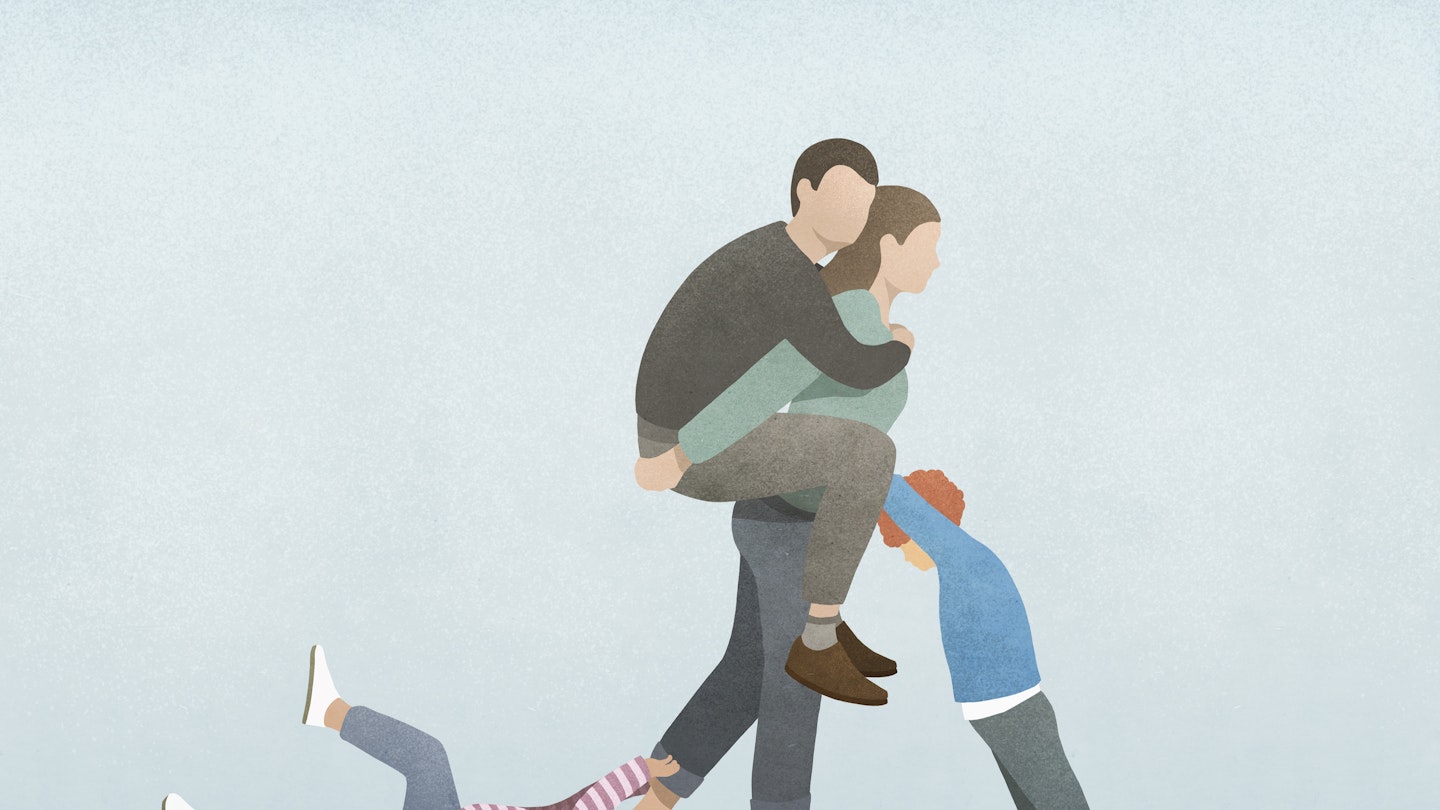Are you the CEO of your family? If so, tender your resignation now. No, this isn’t a neo-conservative rant – this is the croaky, worn-out voice of experience talking. Clarissa Farr, former head of the fiercely academic St Paul’s Girls’ School in London, said last week that she worries about a generation of high-achieving working mothers who are taking on too much. ‘Women may be our own worst enemy, still being the CEOs [chief executive officers] at home,’ she said. ‘Usually mums are running the family diary – they are in control of what needs to happen to keep the family afloat. Fathers are definitely a junior partner in that partnership.’
As someone who muddled through bringing up two daughters (now 19 and 16) while working variously as a magazine editor (including Grazia) and more lately as the founder of a tech start-up, I couldn’t agree with her more. Looking back at those manic early childhood years, I turn pink with shame to think of how I tried to manage the home like a FTSE 100 company. I wasn’t just the CEO, I tried to be the entire C-suite: COO, CFO and CMO too. Invariably, it all ended in tears and recriminations and moaning about being ‘too stressed’.
To listen to me, you’d think I was married to a throw-back man who never lifted a finger. But that is not the case at all. My husband, who also worked full-time, quietly busied himself around the house, always stepping in to breach the gap when needed. In other words, at home he was the ‘junior partner’ – or worse, ‘executive assistant’ Now that my girls are older and more independent, I look back at those years and wonder why we didn’t do it differently. When my husband took the girls to a doctor’s appointment or packed their bags for a school camp, it might not have been exactly the way I would have done it, but our daughters were absolutely fine. They might have been short on socks, or taken the wrong kind of sandwich but, hey, no one died. Stanford family researchers Phil and Carolyn Cowan believe the problem with unequal sharing of duties at home lies with the fact that women do not feel entitled to put their own needs, comforts or ambitions first. They call this issue ‘unentitlement’.
But how many women do you know who are worn out and angry because they just can’t cope with a heavy workload, small children and zero downtime? A recent study found that if you are a full-time working mother with two children, you are 40% more stressed than the rest of the population. And while the gender pay gap is narrowing, the gender housework gap is not. At last count, 88% of women feel domestic duties fall to them, even if they have a career. We put further pressure on ourselves with ridiculous levels of perfectionism, developing an unhealthy obsession with optimising our children’s life experiences. I remember getting up early to click-clack my way in Prada heels to a pre-school French class, dragging a four-year-old behind me.
I did it in the mistaken belief that I would fail her as a mother if I didn’t (trust me, it’s a waste of time and money). I wish now that I’d spent that time putting my own needs first by relaxing in bed with a nice cup of tea. Oh, the follies of young motherhood. For our own sanity, well-being, relationships and career progression, we need to change our ways. If you take your career seriously, it needs to be taken seriously at home too. Farr points out that many of the graduates from her school struggle to get to the top of their professions, despite being the most capable in the country (98% of St Paul’s girls get an A or A* in their A levels). If they spent more time honing their careers and less time clearing out the linen cupboard, who knows what they could achieve?
A good deal of the blame lies with an unfair parental leave system. Fathers still only receive two weeks of paternal leave when a baby is born and only 1% of men have taken up shared parental leave since it was introduced in 2015. Plus, in many traditional workplaces it is still frowned on when they request flexible working to share the load at home. Until parenting is regarded as a truly equal partnership, women will always be expected to bear the brunt of it. But it’s also our responsibility as working mothers to effect change. As Farr so rightly says, we can be our own worst enemies.
We may be biologically programmed to be primary care-givers and nurturers, but we also strive to have successful and stimulating careers. The only possible way to make this work is to be kinder to ourselves and relinquish more control at home to a partner who most likely welcomes that responsibility. Most men I know, and particularly the young men, want to be deeply involved in the home and their families. So, instead of behaving like family CEOs, let’s help them to become co-founders – with equal share rights. Fiona Mcintosh is co-founder of beauty-on-demand app blow LTD.
Do you agree? Let us know your thoughts at feedback@graziamagazine.co.uk
